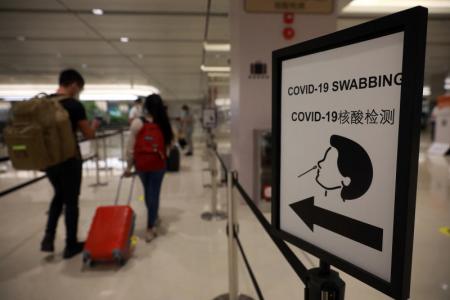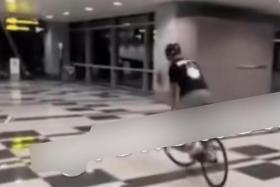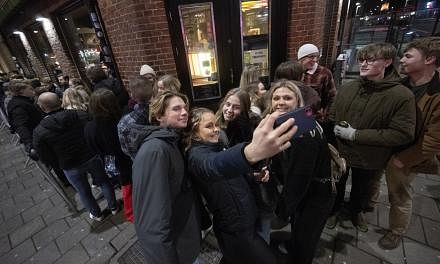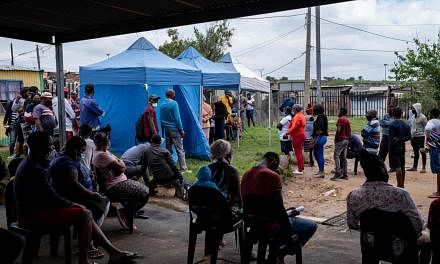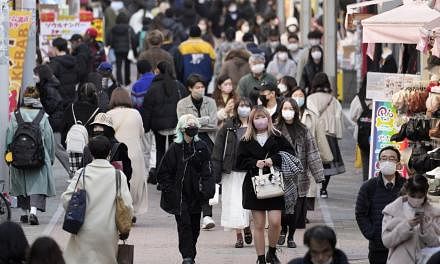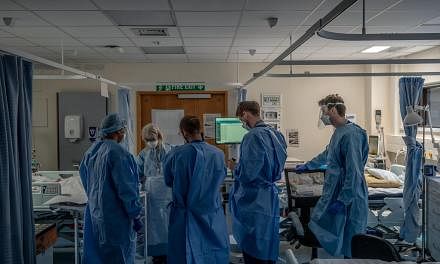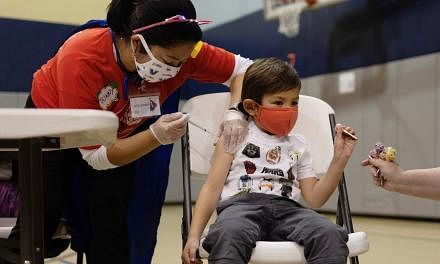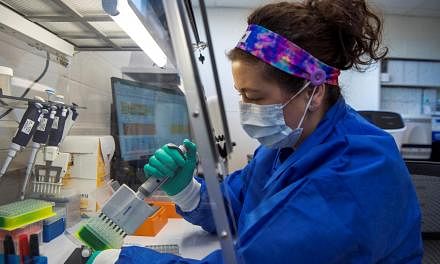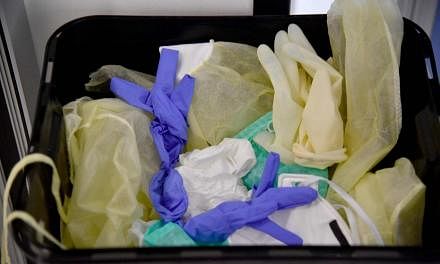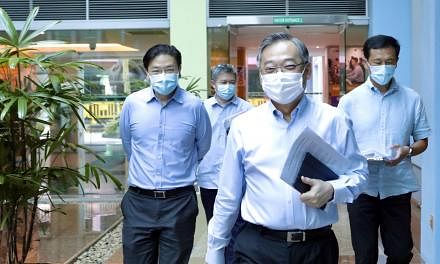MOH conducting study on effectiveness of ART to screen incoming travellers
The authorities are conducting a study to trial the efficiency of antigen rapid test (ART) self-test kits for on-arrival passengers at Changi Airport, in what could be a move to replace polymerase chain reaction (PCR) testing.
In the past two weeks, several passengers have received free ART kits following their PCR tests as part of a study being conducted by the Ministry of Health (MOH).
On Saturday (Feb 12), Singapore-based travel website MileLion shared an MOH circular from a passenger who was given an Abbott Panbio ART self-test kit.
He received the kit following his PCR test upon arrival from Istanbul on Jan 31. The passenger was on a vaccinated travel lane (VTL) flight.
The text of the circular said: "The Ministry of Health, Singapore (MOH), is conducting a study as part of continuous efforts to monitor the effectiveness of approved antigen rapid tests (ARTs). This validation is important to allow us to better understand the utility of ARTs in the face of Omicron and guide our testing policy. We thank you for your contribution."
Further instructions on the circular told passengers to perform the ART upon arrival at their home or designated accommodation on the same day, and submit their test results via a link provided in a QR code printed on the circular.
MileLion author and founder Aaron Wong also received a Flowflex ART kit and an identical circular on his return from Bangkok last Friday. He was on a Scoot VTL flight.
They were both still required to do the polymerase chain reaction (PCR) test upon arrival, and received the free ART kits afterwards.
The Straits Times understands that besides test kits from Abbott Panbio and Flowflex, BD test kits are also being trialled.
It is not clear which category of travellers is currently receiving the kits as part of the study or how long the study will run.
ST has contacted MOH to check if it is exploring the feasibility of replacing on-arrival PCR tests with ARTs.
Mr Wong, a frequent traveller, welcomes such a move as it will significantly bring down the cost of travelling.
Currently, each passenger arriving at Changi Airport has to pay $125 to take a PCR test. ART kits cost around $5 each.
"I'm very happy to see on-ground evidence that we're moving towards ARTs. PCR testing is cost-prohibitive. Imagine having to pay $500 for a family of four," Mr Wong told ST.
Not only are ART kits cheaper, but results are much faster, usually within 10 to 15 minutes, while PCR test results could take up to 12 hours. Travellers are required to stay put in their accommodation until they receive a negative test result from the authorities.
Added Mr Wong: "I've been on half a dozen VTL flights and (PCR test) results typically take between six and eight hours. If you think about business travellers, it doesn't make sense for them to be stuck in a hotel for that long waiting for results... ART tests are so much more convenient."
He also noted that most states in Australia have replaced on-arrival PCR tests with self-administered ART swabbing, and one is free to move around as soon as a negative result is received.
"Besides VTL passengers, I've also heard of passengers arriving from China who received the kits, so it could be those arriving from Category 1 countries as well," said Mr Wong.
Category 1 places are Hong Kong, Macau, Mainland China, and Taiwan.
PCR tests have an accuracy of above 99.5 per cent. However, the sensitivity rate of ARTs vary. The World Health Organisation requires ARTs to have a sensitivity rate of above 80 per cent.
The study comes as Singapore has been gradually easing travel restrictions to make them less onerous for travellers.
Of the more recent changes to testing protocols, from Jan 24, those entering Singapore through VTLs no longer need to perform an ART every day.
Instead, they need to swab themselves only on days that they wish to head out. Additionally, they do not need to submit their test results.
This was a change from a strict daily testing regime in place from Dec 6, in the wake of surging Omicron cases, when travellers had to take a self-administered Covid-19 ART on days two, four, five and six after arrival, and undergo a supervised ART on days three and seven after arrival.
Travellers can now also take a professionally administered ART for their pre-departure test, in place of the more expensive PCR test.
Get The New Paper on your phone with the free TNP app. Download from the Apple App Store or Google Play Store now

